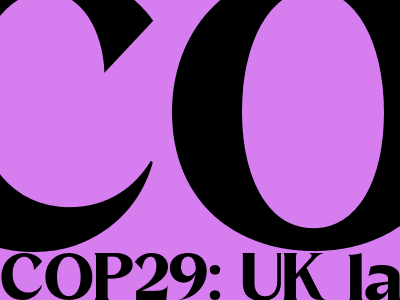
COP29: UK launches carbon market integrity priciples
The UK has launched a set of principles for the integrity of carbon markets at COP29, the UN climate summit in Egypt.
The principles are designed to help ensure that carbon markets are transparent, robust, and environmentally effective. They cover a range of issues, including the accounting of emissions reductions, the avoidance of double counting, and the prevention of fraud.
The UK's principles are based on the recommendations of the Taskforce on Scaling Voluntary Carbon Markets, which was established by the UK government in 2021. The taskforce brought together experts from across the carbon market ecosystem to develop a set of principles that would help to ensure the integrity and credibility of voluntary carbon markets.
The UK's principles have been welcomed by a range of stakeholders, including the International Emissions Trading Association (IETA) and the World Bank. IETA said that the principles "provide a clear and comprehensive framework for the development of robust and credible carbon markets." The World Bank said that the principles "are a significant step forward in the development of a global carbon market that can help to meet the goals of the Paris Agreement."
The UK's principles are a significant contribution to the development of a global carbon market. They provide a clear and comprehensive framework for the development of robust and credible carbon markets. The principles are likely to be adopted by a range of countries and organizations, and they will help to ensure that carbon markets play a key role in the fight against climate change.
Here are the key principles:
- Transparency: Carbon markets should be transparent and accessible to all participants. This includes providing clear and accurate information on the emissions reductions that are being traded, the accounting methodologies that are being used, and the governance arrangements that are in place.
- Robustness: Carbon markets should be robust and able to withstand fraud and manipulation. This includes having strong governance arrangements, clear and enforceable rules, and independent verification of emissions reductions.
- Environmental effectiveness: Carbon markets should be environmentally effective and contribute to the achievement of climate change goals. This includes ensuring that the emissions reductions that are being traded are real, permanent, and additional.
The UK's principles are a significant step forward in the development of a global carbon market. They provide a clear and comprehensive framework for the development of robust and credible carbon markets. The principles are likely to be adopted by a range of countries and organizations, and they will help to ensure that carbon markets play a key role in the fight against climate change.